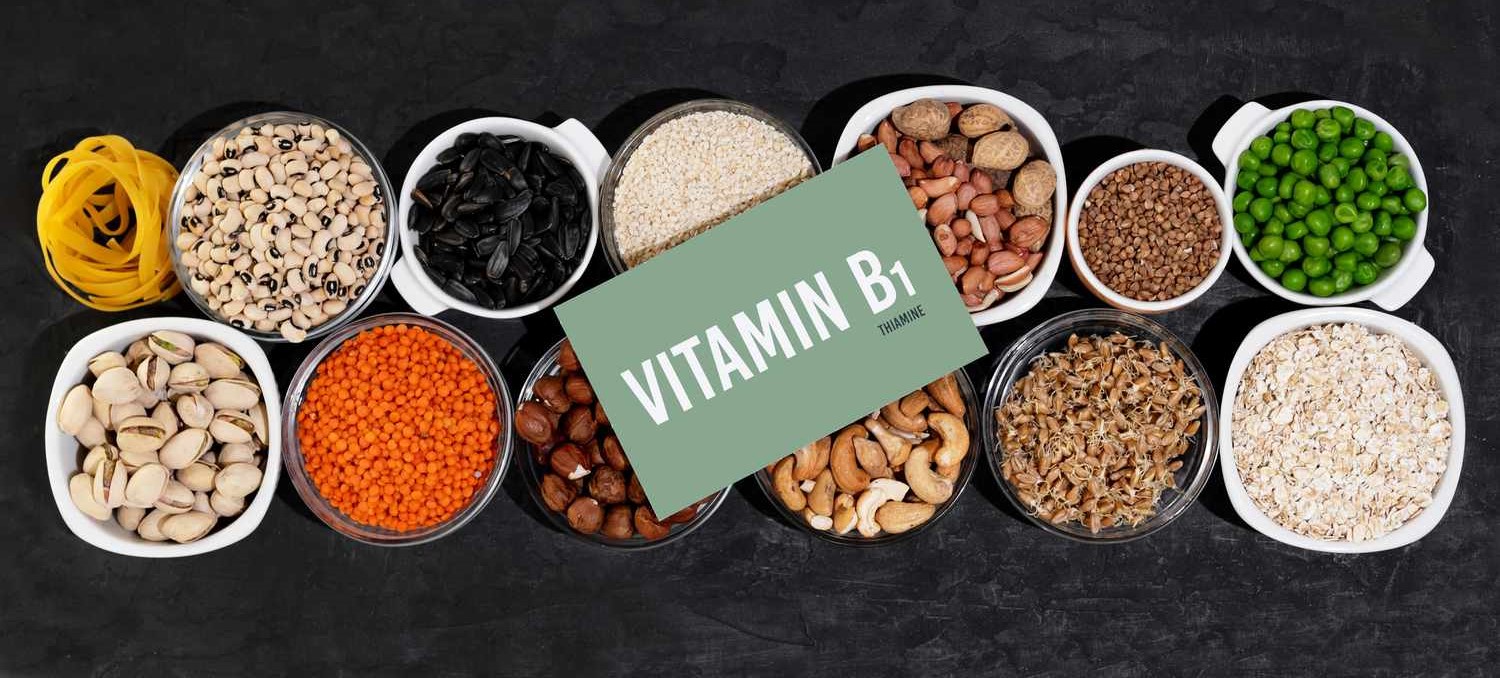Vitamin B1, also known as thiamine, is a crucial member of the B-vitamin complex, playing a fundamental role in maintaining optimal health and well-being. As an essential nutrient, thiamine contributes to various bodily functions, ensuring the proper functioning of the nervous system, metabolism, and energy production. In this comprehensive blog post, we’ll delve into the benefits of Vitamin B1, explore its sources, and shed light on the consequences of thiamine deficiency.
The Basics of Vitamin B1: Vitamin B1 is a water-soluble vitamin, meaning it dissolves in water and is not stored in the body for extended periods. Therefore, a consistent intake through diet is essential to meet the body’s requirements. Thiamine serves as a coenzyme in the metabolism of carbohydrates, aiding in the conversion of glucose into energy. This pivotal role makes it indispensable for the proper functioning of the cardiovascular, muscular, and nervous systems.
Benefits of Vitamin B1:
- Energy Metabolism: Thiamine is a key player in the conversion of carbohydrates into energy. It helps in the breakdown of glucose, the primary fuel for the body, ensuring a steady and efficient energy supply. Adequate levels of Vitamin B1 are crucial for individuals with active lifestyles or those requiring sustained mental and physical exertion.
- Nervous System Support: The nervous system relies heavily on thiamine for its proper functioning. Vitamin B1 aids in the synthesis of neurotransmitters, the chemical messengers that transmit signals between nerve cells. This function is vital for maintaining cognitive functions, concentration, and a healthy mood.
- Cardiovascular Health: Thiamine contributes to the maintenance of a healthy cardiovascular system. It plays a role in the dilation of blood vessels, helping to regulate blood flow. Additionally, Vitamin B1 is involved in the synthesis of red blood cells, which are essential for oxygen transport throughout the body.
- Digestive Function: Thiamine is essential for proper digestion, as it helps in the production of hydrochloric acid in the stomach. Adequate stomach acid is crucial for breaking down food and facilitating nutrient absorption, ensuring overall digestive health.
Source s of Vitamin B1:
- Whole Grains: Whole grains, such as brown rice, oats, and whole wheat, are excellent sources of Vitamin B1. Including these grains in your diet provides a steady supply of thiamine, supporting energy metabolism and overall well-being.
- Legumes and Pulses: Beans, lentils, and peas are rich sources of thiamine. They not only contribute to your daily protein intake but also offer a substantial amount of B-vitamins, including Vitamin B1.
- Nuts and Seeds: Nuts and seeds, such as sunflower seeds, pine nuts, and macadamia nuts, are nutrient-dense snacks that provide not only healthy fats but also essential vitamins and minerals, including Vitamin B1.
- Lean Meats: Lean meats, particularly pork and certain cuts of beef, contain significant amounts of thiamine. Including lean meats in your diet ensures a robust intake of essential nutrients, supporting overall health.
- Fish: Fish, especially tuna and salmon, are good sources of Vitamin B1. Consuming fish not only contributes to thiamine intake but also provides omega-3 fatty acids, promoting heart health.
- Fortified Foods: In some regions, certain foods are fortified with B-vitamins, including thiamine. Common examples include fortified cereals, bread, and nutritional yeast.
- High Quality supplement: When choosig a supplement make sure it doesnt have any additives, bulking agents etc.
Thiamine Deficiency and Its Consequences:
A deficiency in Vitamin B1 can lead to a condition known as beriberi. Beriberi manifests in various forms, including:
- Wet Beriberi: Characterized by cardiovascular symptoms, wet beriberi can lead to heart failure and edema (fluid retention). Individuals with wet beriberi may experience shortness of breath, increased heart rate, and swelling.
- Dry Beriberi: Dry beriberi primarily affects the nervous system, resulting in symptoms such as difficulty walking, tingling or numbness in the extremities, and muscle weakness. Left untreated, dry beriberi can lead to irreversible nerve damage.
- Wernicke-Korsakoff Syndrome: This severe form of thiamine deficiency often occurs in individuals with chronic alcoholism. Wernicke-Korsakoff Syndrome manifests with neurological symptoms, including confusion, memory loss, and impaired coordination.
Preventing Thiamine Deficiency:
To ensure an adequate intake of Vitamin B1 and prevent thiamine deficiency, consider the following:
- Maintain a Balanced Diet: Incorporate a variety of thiamine-rich foods into your diet, including whole grains, lean proteins, legumes, nuts, and seeds. A diverse and balanced diet is key to meeting your nutritional needs.
- Consider Supplements: In certain cases, such as during pregnancy or for individuals with restricted diets, thiamine supplements may be recommended. However, it’s crucial to consult with a healthcare professional before initiating any supplementation. But most important the quality of the supplement must be a trusted one. That is why Centralsun sells Vitamin B1 fron the brand Epigenetis. You can find it HERE.
- Limit Alcohol Consumption: Excessive alcohol consumption can interfere with thiamine absorption and utilization in the body. Moderating alcohol intake contributes to overall health and helps prevent thiamine deficiency.
Conclusion: Vitamin B1, or thiamine, is a vital nutrient with far-reaching implications for overall health. From energy metabolism to nervous system support, thiamine plays a multifaceted role in maintaining optimal well-being. By incorporating thiamine-rich foods into your diet and adopting a balanced lifestyle, you can harness the benefits of Vitamin B1 and safeguard against the consequences of deficiency. Always consult with a healthcare professional for personalized advice on meeting your nutritional needs and maintaining a healthy, thriving life.
